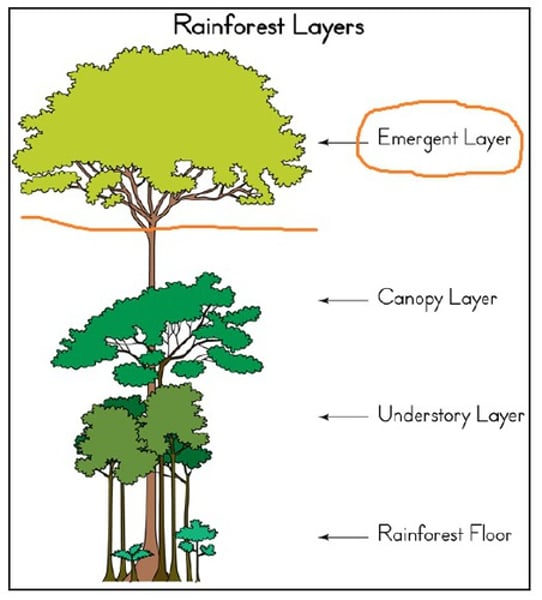[sustaining ecosystems] rainforests
1/19
There's no tags or description
Looks like no tags are added yet.
Name | Mastery | Learn | Test | Matching | Spaced | Call with Kai |
|---|
No analytics yet
Send a link to your students to track their progress
20 Terms
Biodiversity
The variety of flora and fauna in a habitat.
Why do certain regions have tropical climates?
areas of low pressure (warm + wet weather)
high temperatures = sunlight concentrated at the equator / smallest surface area + sun radiation travels shorter distance (high insolation)
high precipitation = clouds condensing from warm air rising
Why do certain regions have dry climates?
areas of high pressure (dry and clear weather)
high temperatures
1st Level of Rainforests (approx. 50m)
Emergents

2nd Level of Rainforests (approx. 30m)
Canopy
3rd Level of Rainforests (approx. 20m)
Under Canopy
4th Level of Rainforests (approx. 10-0m)
Shrub Layer
1st Stage of Rainforest Water Cycle
Heavy, daily, convectional rain.
2nd Stage of Rainforest Water Cycle
Tall trees intercept rain.
3rd Stage of Rainforest Water Cycle
This leads to only some rain reaching the ground and soil.
4th Stage of Rainforest Water Cycle
Trees take up water.
5th Stage of Rainforest Water Cycle
Water evaporates from surfaces of the trees and leaves of flora in general (transpiration).
Humus
Dark, organic material that forms in soil when plant and animal matter decays.
Leaching
The removal of nutrients by water.
1st Stage of Nutrient Cycle
Trees shed leaves all year round.
2nd Stage of Nutrient Cycle
Decaying vegetation decomposes rapidly.
3rd Stage of Nutrient Cycle
Nutrients from the decay enter the soil.
4th Stage of Nutrient Cycle
Shallow roots take up the nutrients.
5th Stage of Nutrient Cycle
Trees grow rapidly as they have access to these nutrients.
Rainforests' Soil Profile
- the soil is very deep but it only has a thin, fertile layer meaning the rest of the soil lacks nutrients (infertile)
- hot + wet weather means chemical weathering is rapid, usually meaning there is a deep layer of soil